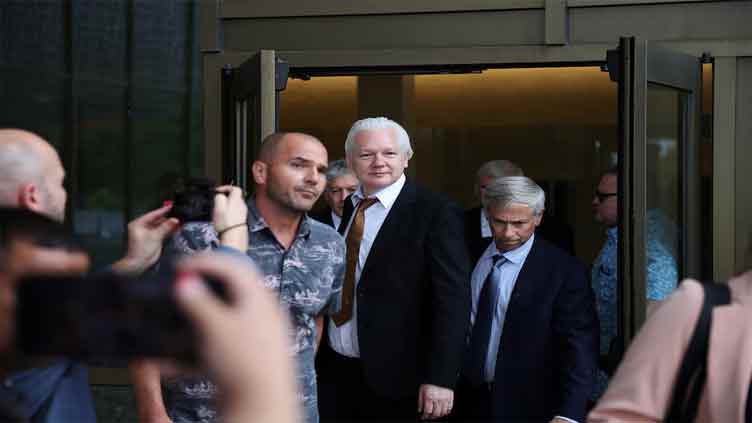How Australia's quiet diplomacy led Julian Assange to freedom

World
How Australia's quiet diplomacy led Julian Assange to freedom
CANBERRA/SYDNEY/LONDON (Reuters) - After Julian Assange was released by a court on the remote US Pacific territory of Saipan on Wednesday, ending a 14-year legal battle, the WikiLeaks founder's lawyer first thanked Australian Prime Minister Anthony Albanese for making the outcome possible.
Jennifer Robinson, the Australian attorney of Assange, said diplomacy and intense lobbying with the highest authorities in the US played a big role in Assange walking free, after spending five years in a high-security British prison and seven years holed up in the Ecuadorean embassy in London.
"At every opportunity, and when Australian officials were making outreach to the US, they knew that they were acting with the full authority of the prime minister of Australia," Robinson told reporters outside the courtroom in Saipan.
Albanese has claimed Assange's release as a win for the country, which leveraged its security ties with Washington and London to strengthen its case to resolve the plight of an Australian citizen.
"This work has been complex and it has been considered. This is what standing up for Australians around the world looks like," Albanese, leader of a centre-left Labor government, told parliament on Wednesday.
Assange, who landed in Australia on Wednesday evening, had faced a maximum jail sentence of 175 years after being charged with 17 counts of breaching the US Espionage Act and a hacking-related charge. Under a deal revealed on Tuesday, he pled guilty to a single charge of espionage and walked free.
The deal gained momentum as the US faced growing challenges in the UK over the legality of extraditing Assange, while Australian lawmakers and diplomats raised the heat in Washington and London.


